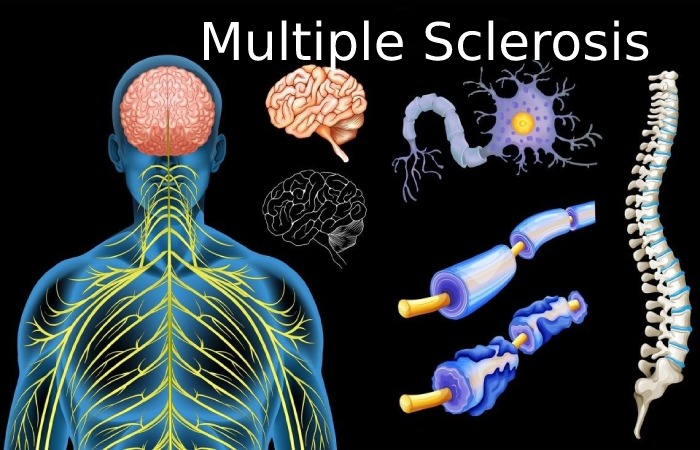Table of Contents
What is Multiple Sclerosis?
Multiple sclerosis (MS) is an autoimmune virus that affects the brain and spinal cord. It is a neurodegenerative disease that affects the central nervous system and affects women more than men. The disease eventually leads to reduced mobility or total disability in the most severe cases.

Different Types of Multiple Sclerosis
The relapse-remitting form is the most frequent and affects more than 80% of people who suffer from this pathology. It may be asymptomatic in the initial phase, although inflammatory lesions are already taking place in the central nervous system.
Primary progressive form: affects 10% of patients and is characterized by the absence of defined foci.
Secondary progressive form: occurs when the degree of disability persists or worsens and characterize by continuous progression.
The progressive relapsing form is rare, with progression from the start showing acute attacks without complete recovery.
Prognosis of the Disease
The prognosis is variable and difficult to predict. Like most chronic and debilitating illnesses, the disease can lead to somewhat shorter life expectancies in patients compared to the healthy population. Indeed, they are more prone to respiratory and urinary infections, etc.
In most cases, people with multiple sclerosis continue to walk and work at work with minimal disability for several years.
Symptoms of Multiple Sclerosis
Symptoms vary depending on the location and extent of each attack, and episodes can be of different lengths and can vary in days, weeks, or months. The seizures follow by remissions, which are periods during which there is a decrease or disappearance of symptoms.
Fatigue is a prevalent symptom of illness, and it tends to get worse in the late afternoon. The other most common symptoms are:
Muscle symptoms: muscle spasms, loss of balance, tremors, and weakness.
Bladder and bowel symptoms: constipation, difficulty urinating, frequent urination, and urinary incontinence.
Eye symptoms: double vision, eye discomfort, and loss of sight.
Numbness, Tingling, or Pain: Muscle spasms, facial pain, and tingling sensation.
Brain and neurological symptoms: depression, hearing loss, dizziness, decreased attention span, and memory loss.
Sexual symptoms: erection problems and vaginal lubrication.
Speech and swallowing symptoms: problems with poorly spoken language and chewing.
Medical Tests for Multiple Sclerosis
The disease diagnosis is not easy and different pathologies must be ruled out to reach a definitive diagnosis. Diagnosis requires the interaction of other medical disciplines.
The Most Common Medical Tests
- Analytic
- Brain MRI
- Lumbar puncture
- Potential tests evoked
What are the Causes of Multiple Sclerosis?
The cause of multiple sclerosis is unknown, although several indications relate to impaired autoimmune mechanisms—numerous sclerosis reasons by damage to the myelin sheath, the protective coating surrounding neurons. When the layer is damaged, nerve impulses slow down or stop—nerve damage basis on inflammation, which occurs when the body attacks the nervous system.
Experts believe that the cause of multiple sclerosis is related to a virus, a genetic defect, or both. Environmental factors can also play a role.
Can We Prevent it?
Being of unknown cause, its prevention is not possible. However, medical specialists believe that regular exposure to the sun, always with protection, can help control one of the factors linked to the development of the disease, such as vitamin D deficiency.
Multiple Sclerosis Treatments
Currently, there is no definitive cure for multiple sclerosis, and however. And also there are several treatments that can delay the disease. Treatment aims to prevent the progression of symptoms and maintain the patient’s quality of life.
Various drugs habit to slow the progression of the disease and reduce the severity of seizures. In addition, certain medications help control the symptoms.
Other treatments such as physical therapy, following a healthy lifestyle, or avoiding stress can help people with multiple sclerosis.
